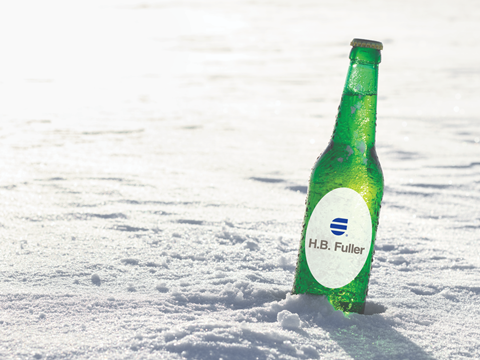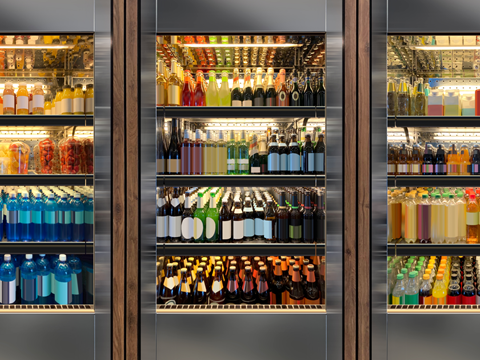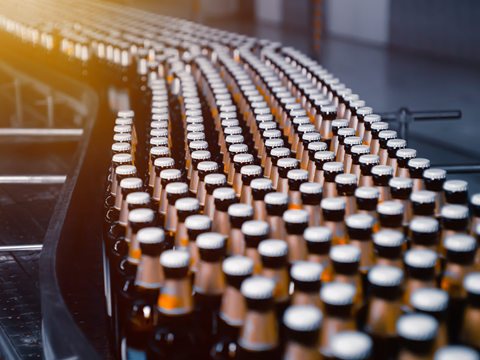
As sustainability gains global momentum, industries are rethinking processes to minimize waste, conserve resources, and align with the principles of the circular economy. The beverage sector, particularly breweries and mineral water producers, face unique challenges with reusable glass bottles, where efficient labelling and bottle cleaning are critical.
In this edition of our ‘In Conversation With…’ series, Sabine Pietka, global marketing manager Beverage at H.B. Fuller, explains how the company’s water-based adhesive technology aims to transform this space by addressing both operational efficiency and environmental sustainability.
You describe reusable glass bottles as the workhorse of the beverage industry, and as technology advances, some processes stay the same.
Where do you see drawbacks of using traditional labelling technology on reusable glass bottles? Why are you looking for alternatives, and what must a new solution achieve?
Traditional labels on reusable glass bottles pose challenges such as difficulty in removal, residue buildup, and reliance on harsh cleaning methods, which are the main cost drivers and responsible for considerable environmental impact. These drawbacks make traditional labels less compatible with sustainability goals and the efficient operation of reuse systems.
To address this, any alternative must endure diverse environmental conditions – such as condensation, UV exposure, and temperature fluctuations – while maintaining clear branding and remaining easy to remove during bottle washing. The ideal solution should be sustainable, durable, cost-effective, and aligned with the principles of a circular economy.
Tell us about water-based adhesives. How could they benefit the production and performance of reusable glass bottles?
H.B. Fuller’s new water-based adhesive technology offers both environmental and operational benefits, such as reduced water and energy usage during bottle washing, lowering costs and impact. A single adhesive for various label types simplifies processes, reducing errors and complexity.
It also supports the hygienic reuse of bottles, which is vital for sustainable beverage packaging. By optimizing cleaning and labelling, this technology helps reduce resource consumption and contributes to broader sustainability goals in the circular economy.

What about the logistics of a reuse system – how can H.B. Fuller’s water-based adhesives help?
Our new water-based adhesive technology streamlines the logistics of a reuse system by enabling efficient cleaning processes, reducing labour, time, and detergent usage during bottle preparation. Its easy removability minimizes equipment wear and tear, lowering maintenance costs and increasing operational efficiency.
Additionally, its sustainable composition supports regulatory compliance and sustainability goals, enhancing the appeal of reuse systems to both businesses and consumers. Overall, our new water-based adhesive technology contributes to a smoother, cost-effective, and environmentally responsible reuse operation.
And what are the environmental credentials of your new water-based technology adhesives?
The new labelling technology is borax- and zinc-free, making it safer for operators and better for the environment. Certified to have no negative impact on wastewater treatment, it integrates seamlessly into sustainable production processes. These qualities make them a sustainable choice, aligning with sustainable practices and supporting circular economy initiatives.
How have these adhesives been tested?
Our new adhesives have been tested through rigorous performance evaluations, including adhesion strength, removability, and durability under various conditions, such as condensation and ice water resistance, temperature changes, and UV exposure.
Simulated reuse cycles assess their ability to maintain strong initial bonds while ensuring easy removal during cleaning processes. With our in-house industrial bottle washer, we can simulate different washing conditions to ensure zero label carry-over and ghosting.

Are there any roadblocks in the wider adoption of water-based adhesives, or any shortcomings that still need developing?
The beverage industry can be rather traditional at times, and old habits die hard. In some cases, we find customers very reluctant to move away from casein-based adhesives that they have been using for many years or even decades.
Here, our application specialists can be of great help to show line operators how to achieve operational efficiencies and performance from the new technology.
Moreover, environmental conditions and consumer habits differ widely, for which we have developed a global product range to compensate for these differences. High humidity and drinking beverages straight from a pail of ice require a different adhesive product than beer filled and drunk at ambient temperatures.
Where do you expect water-based adhesives to go next? How are they likely to develop in the future?
With the Packaging and Packaging Waste Regulation (PPWR) now approved in the EU, we need to work with customers to ensure that all requirements are met, while we are still waiting on delegated acts for recyclability assessments.
However, for reusable glass bottles, we don’t expect any real changes due to this legislation. Rather, with deposit return schemes being put into place across the EU, the market should grow, and producers will consider switching from one-way to reuseable glass bottles.
To learn more about food and beverage labelling with H.B. Fuller, click here.

















No comments yet